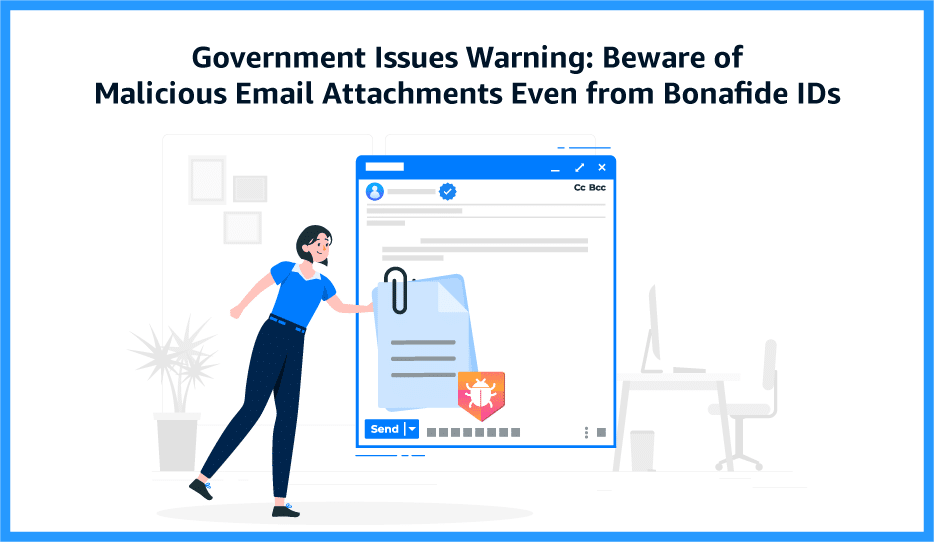
In a concerning development, the government has issued a cybersecurity circular, cautioning officials about the potential risks associated with email attachments and links, even when they originate from legitimate gov.in and nic.in email IDs. This advisory underscores the growing threat landscape in the digital realm and the need for heightened vigilance.
The Alert: A Government Advisory
The cybersecurity circular, issued on July 27th by a government body, serves as a wake-up call for government officials. It stresses the importance of exercising caution when dealing with email attachments and links from apparently genuine gov.in and nic.in email addresses. These domain names are exclusively assigned for official use by government officials at both the Union and state levels.
Rising Threats: Phishing and Malware Attacks
This advisory comes against the backdrop of an alarming increase in cyber threats faced by government officials. Threat actors are using various tactics, including phishing emails loaded with harmful viruses and malware, to target unsuspecting recipients. Once these attachments are opened, threat actors gain access to sensitive information, including defence-related data and other government resources.
Identifying Suspicious Domain Names
The advisory also highlights specific domain names that have raised red flags in recent cyberattacks. Among these are mydrive-nic.online and secure-nic.online, which have been associated with Chinese threat actors involved in phishing scams. Other suspicious domain names listed include drive-nic.online, files-nic.link, files-nic.space, and nic-files.download.
Prior Warnings: A Continual Battle
This latest circular follows a previous advisory by a government agency that warned officials about a covert attack campaign. In this campaign, officials received emails containing malware disguised as recommendations aimed at preventing honey-trapping—a method often used to compromise individuals for sensitive information.
Conclusion: Staying Vigilant in a Digital Age
As cyber threats continue to evolve and become more sophisticated, government officials must remain vigilant in safeguarding sensitive information. The issuance of this advisory underscores the government’s commitment to ensuring the security and integrity of its communications and data. It serves as a timely reminder that in today’s digital age, even seemingly legitimate email attachments and links may carry hidden dangers, and caution is of utmost importance. Staying informed, following best practices, and promptly reporting any suspicious activity are key steps in maintaining a secure digital environment.
Besides, organizations, governmental or otherwise, should also embrace the adoption of DMARC which has the impressive ability to protect against such email domain abuse.